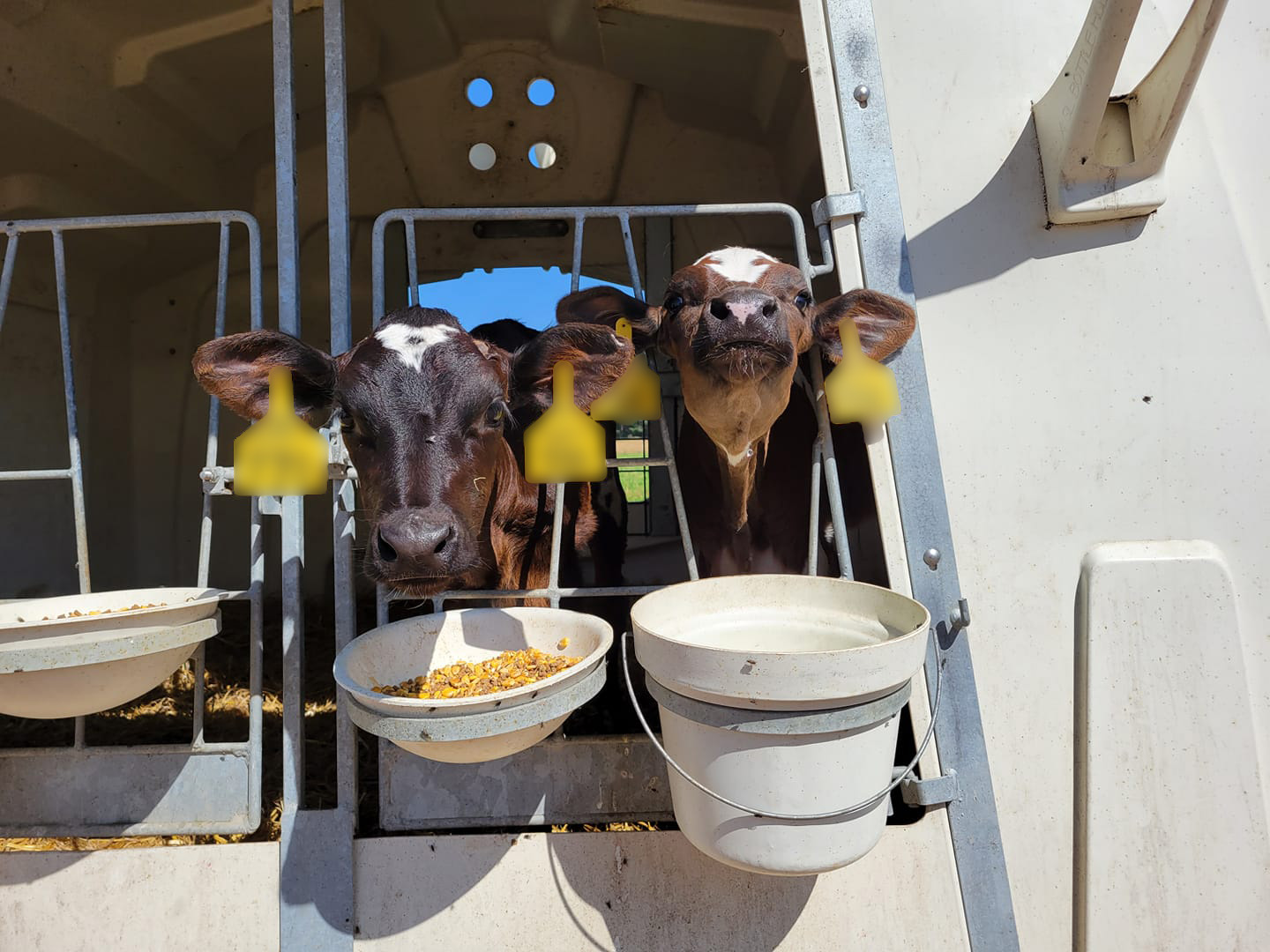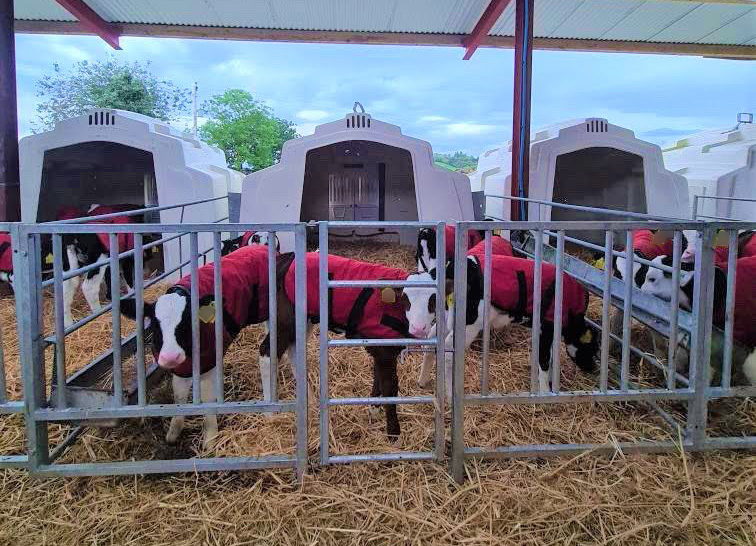In the first part of our series, we explored how the extra space in Agri-Plastics' Wide Body Hutches (WBH) leads to faster growth and improved health for calves. Now, in this second post, we’ll focus on another essential aspect: the social and behavioral advantages of wider housing. Beyond physical development, the environment your calves grow up in has a profound impact on their psychological well-being, which in turn affects their long-term productivity.
1. Social Interaction Leads to Better Development
 Calves are naturally social animals, and wide body hutches provide the
opportunity for paired or group housing. This is a significant advantage over
individual housing in traditional narrow hutches. Research shows that calves
housed in social settings exhibit a 30% improvement in social skills and
cognitive development (Miller-Cushon and Costa 2021). They learn to
communicate, cooperate, and problem-solve more effectively, which is essential
for their future integration into larger herds.
Calves are naturally social animals, and wide body hutches provide the
opportunity for paired or group housing. This is a significant advantage over
individual housing in traditional narrow hutches. Research shows that calves
housed in social settings exhibit a 30% improvement in social skills and
cognitive development (Miller-Cushon and Costa 2021). They learn to
communicate, cooperate, and problem-solve more effectively, which is essential
for their future integration into larger herds.
2. Lower Stress, Happier Calves
Social interaction and spacious environments aren’t just good for growth—they also reduce stress. Calves in wider housing demonstrate a 25% decrease in cortisol levels, a key indicator of stress (Miller-Cushon and Costa 2021). When calves are less stressed, they are more likely to adapt quickly to new environments and challenges, leading to better long-term health outcomes. By lowering stress early in life, you’re helping them become more resilient as they mature.
3. Behavioral Benefits of Paired Housing
The behavioral benefits of wider hutches extend beyond reduced stress. Paired or group-housed calves tend to explore their environment more, eat earlier, and exhibit fewer signs of anxiety. Research supports that calves in social housing consume solid feed earlier and at a higher rate—20% more than individually housed calves (Costa et al. 2015). This translates into faster digestive development and stronger overall growth.

4. Preparing Calves for Herd Integration
Social interaction during the early stages of life prepares calves for integration into larger groups as they mature. Wide body hutches give calves the space and opportunity to learn important social behaviors that help them transition smoothly into adult herds. This not only improves their psychological well-being but also contributes to better herd dynamics and reduced aggression when they join the main herd later on.
Conclusion: Investing in Behavioral Welfare
The social and behavioral advantages of wide body housing cannot be overstated. By offering a space that allows for natural interaction and reduced stress, you’re promoting healthier, more resilient calves that are better equipped to handle the challenges of adulthood. Wide Body Hutches are not just about physical space—they’re about creating an environment that fosters both physical and psychological growth.
Stay tuned for the next blog post in our series, where we’ll explore the long-term economic benefits of investing in wide body hutches and how they can improve your farm's bottom line.
Find out more about Agri-Plastics Calf Housing on www.calfhutch.com
Ready to create healthier, happier calves?
Contact us today for more information or to schedule a call and learn how Agri-Plastics' Wide Body Hutches can enhance your herd's well-being and productivity.